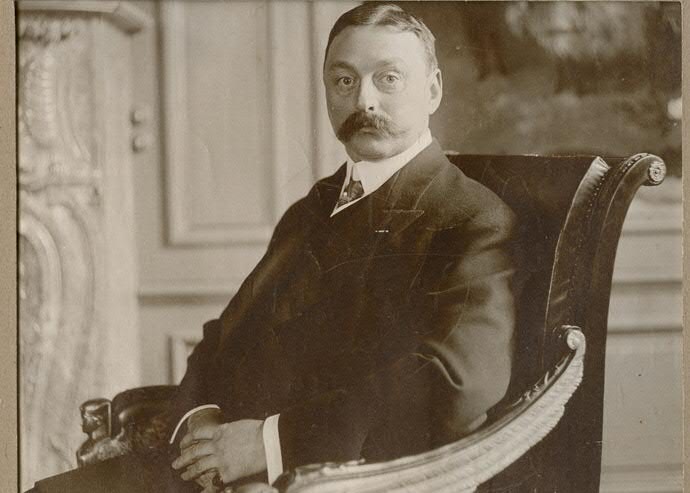Revealing biography about ruined entrepreneur Anton Kröller

The great entrepreneur Anton Kröller, who left numerous investors penniless and almost took the Rotterdamsche Bank with him in his fall, never felt remorse for his deeds. Kröller, the husband of Helene Kröller-Müller and the financer of her world-famous art collection, built up a multifaceted business empire based on a strong desire for power and prestige. His stubborn personality led in a headlong rush to expand that was financed with borrowed money. This story of a fallen businessman who was never punished for his actions can be read in the biography Leven op krediet. Anton Kröller (1862-1941) by business economist Ariëtte Dekker, who will defend her PhD thesis at the University of Groningen on 2 June. The biography also sheds new light on business in the Netherlands at the start of the twentieth century. Kröller was exemplary of the metamorphosis of the Netherlands from a trade to a transit country during and after the First World War.
Although the name Anton Kröller will always remain linked to the museum and the De Hoge Veluwe National Park that he founded, at the start of the twentieth century this son of a simple Rotterdam builder was one of the most powerful and controversial businessmen of his times. He rode on the wave of a rapidly growing capital market expanding his business, which began in the iron ore trade, into a global player with grain interests in Russia, Romania and Argentina, and iron ore mines in Algeria, Sweden, Spain and France. He was of great significance to Rotterdam’s development into a transit port for the transportation of mass goods to Germany.
Loans and fiddled accounts
His fall came after the First World War, when it became apparent that he had funded his rapid growth with loans that he was unable to pay back. His empire could only just be saved from bankruptcy, and the same was true for the Rotterdamsche Bank, from which he had effortlessly secured loans on the basis of fiddled accounts. Many investors could wave goodbye to their money after Anton Kröller’s fall, and he too was left in a bad way with only his country house in the Veluwe to his name.
Burned archives
Shortly before his death Kröller burned his personal archives. That may be one of the reasons why not much more has been known until now about him than his rise and fall as an entrepreneur. For Ariëtte Dekker it was an appealing tale to tell, because she previously wrote the biography of the shipping magnate Cornelis Verolme, who made it big after the Second World War: ‘This is a nice precursor to that tale. They were both Rotterdammers and one followed the other chronologically. Kröller’s life story is interesting for two reasons. Very little is known about his motives and private life because he was a closed book when it came to these. Furthermore, he is exemplary of the metamorphosis of the Netherlands to a transit country. The grain and ore that Kröller sold to both the Germans and English had already been purchased by him at their behest. Transit, therefore, instead of trade. A different kettle of fish from the traditional staple markets of the day.’
No remorse
As Kröller was a closed book, Dekker too had to guess at the exact motives of his destructive headlong rush to expand: ‘But if I add together all that I know about him, it was not so much monetary profit as power and above all prestige. He had a great need for this, and it did not bother him in the slightest that he took so many people with him in his fall. He never expressed any remorse.’
Curriculum Vitae
Ariëtte Dekker (Vleuten-De Meern, 1964) studied Business Economics at Erasmus University Rotterdam and Dutch Law at the University of Amsterdam. She began her research in 2010 at the Institute of Biography in the Faculty of Arts, with Professor Hans Renders and Professor Pim Kooij as her supervisors. A biography of Helene Kröller-Müller by Eva Rovers has already been published. The initiative for these two biographies was taken by the Institute of Biography, the De Hoge Veluwe National Park Foundation and the Kröller-Müller Museum Foundation in 2005. The commercial edition of the thesis Leven op krediet. Anton Kröller (1862-1941) will be published by Prometheus Bert Bakker on 5 June.
More information
Arëtte Dekker, ariettedekker[at]gmail.com
More news
-
14 February 2026
Tumor gone, but where are the words?
-
19 January 2026
Digitization can leave disadvantaged citizens in the lurch
